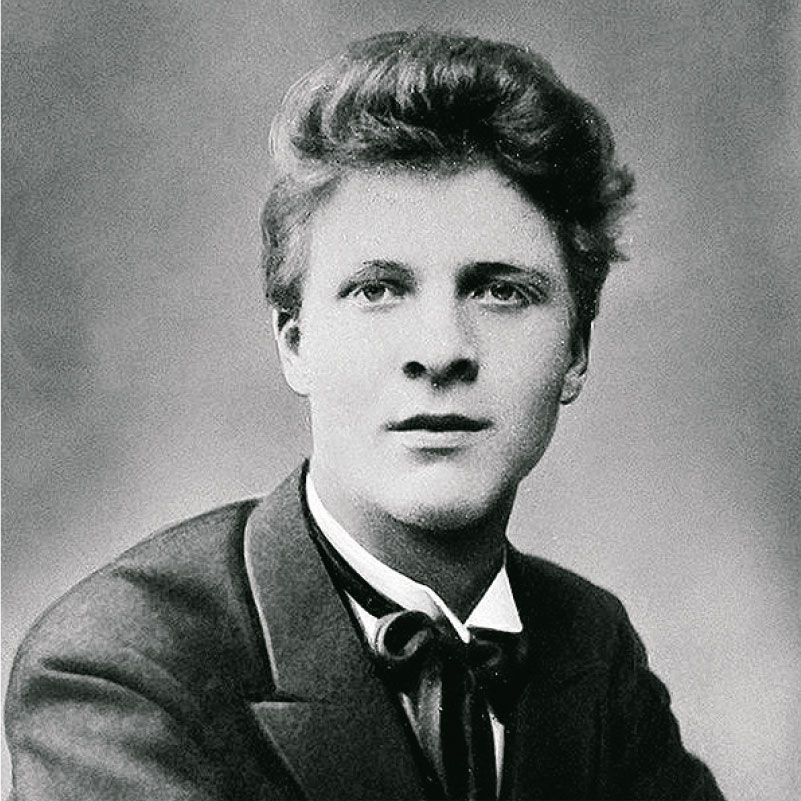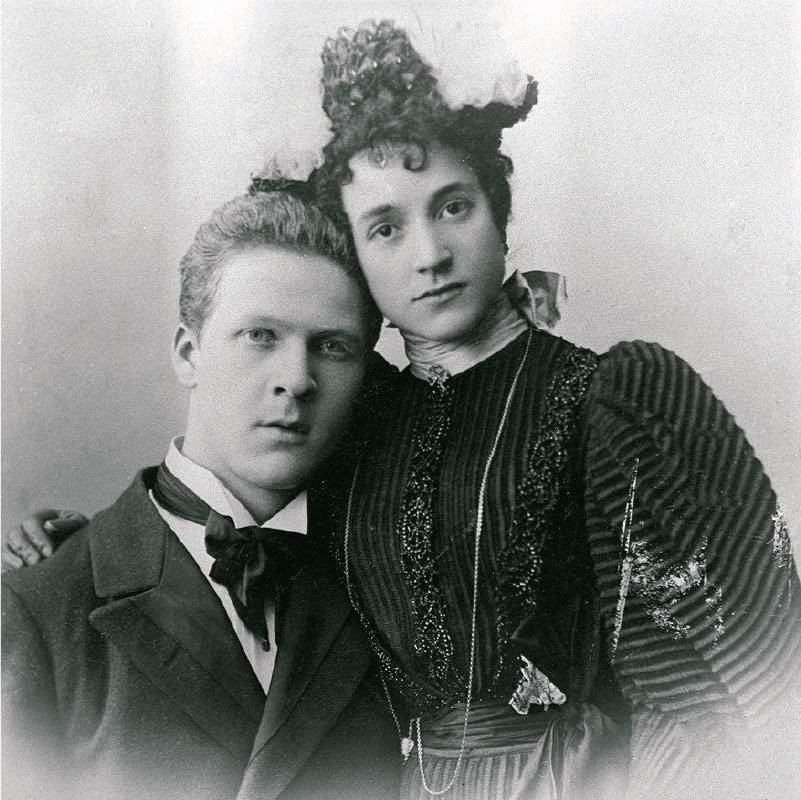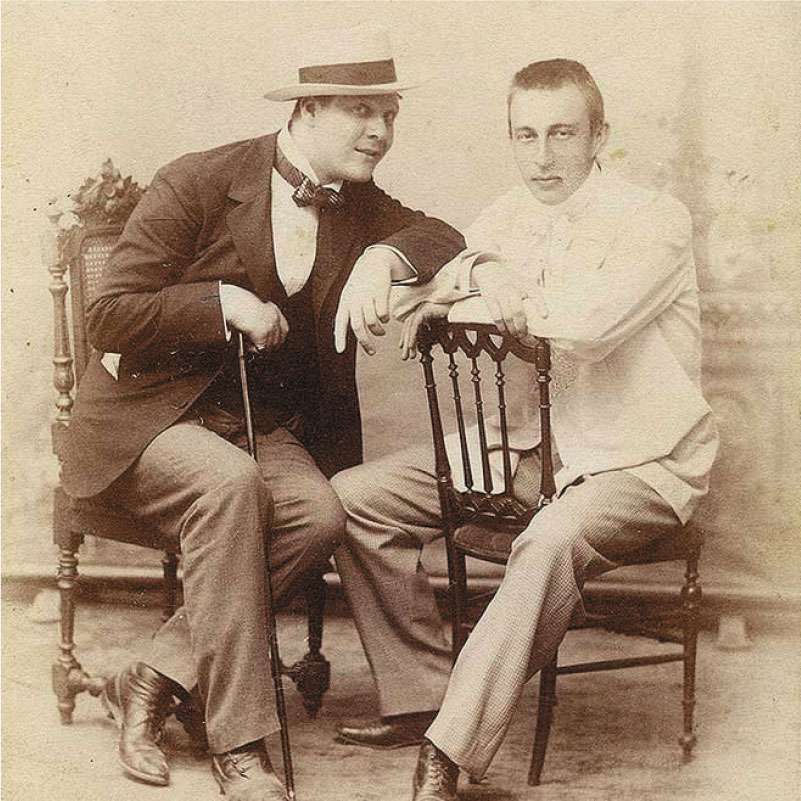Born to a peasant family, Feodor Chaliapin appeared at the best opera houses of the world. He was admired by composers Sergey Prokofiev and Anton Rubinstein, actor Charlie Chaplin, and future King Edward VI of England. This year, the jubilee of the great operatic bass is commemorated by UNESCO: Chaliapin’s 150th anniversary is widely celebrated in Russia and beyond.
From the church choir to the Mariinsky Theater
“If only people knew what a flame is glowing inside me and dying away like a candle …,” Feodor Chaliapin would tell his friends trying to convince them that he was born a sculptor. In the prime of his career as an opera singer, Chaliapin spent a lot of time drawing, painting, and sculpting.
His artistic gift manifested itself on the stage. Chaliapin did his own stage makeup expertly making the appearance of his characters complement and enhance his powerful bass.
The singer sculpted his face. His contemporaries compared his makeup manner to Korovin and Vrubel paintings. His Boris Godunov changed from one scene to another, his wrinkles deepening and his hair turning gray. His Mephisto caused a sensation in Milan. Chaliapin was among the first artists who applied makeup to their hands and body.
“When I appeared on the stage in my costume and makeup, I caused a sensation and was quite flattered. The actors, choir members and even stagehands surrounded me, exclaiming in delight like children, touching me, and were thrilled to find that my muscles were painted.”
A rising star

Yet, his sculpting and painting talents merely created a frame for his amazing voice. Chaliapin started singing in his early years and had a lovely boy soprano voice at the time. Born to a peasant family, he sang in a church choir in his native Kazan and performed at village fairs. At 10 Feodor attended the theater for the first time and dreamed of music ever since. He mastered the art of shoemaking, lathing, woodworking, and binding but it was operatic art he set his sights on. At 14 Chaliapin got a job as a record clerk at the local government of Kazan Uyezd and appeared on the stage as a background artist in his spare time.
Chaliapin’s passion for music took him around the country. Travelling with theater companies to the Volga, the Caucasus and Central Asia, he worked as a mover and a longshoreman to earn a little extra money, often starved but kept waiting for his moment of glory. And it came. On the eve of the show, one of the baritones fell ill, and choir boy Chaliapin was entrusted with the role of Stolnik in Stanisław Moniuszko’s Halka. Even though the debutant missed a chair on the stage, impresario Semyon Semynov-Samarsky was moved by his interpretation. As new roles came along, Chaliapin’s confidence in his artistic future grew.

“I still hold this superstitious belief that it’s a good sign if a debutant misses a chair in full view of the audience during the stage debut. Yet, throughout my career I kept an eye on my armchair and was careful not to miss it or sit in someone else’s chair,” he confided in later years.
At 22 Chaliapin made his debut at the Mariinsky Theater as Mephisto in Gounod’s Faust. A year later, patron of the arts Savva Mamontov invited the young singer to his Moscow Private Opera House. “At Mamontov’s theater, I got the chance to interpret roles that helped me discover and nurture my artistic identity and temperament,” said Chaliapin. The young bass invariably performed to a full house. Ivan the Terrible in Nikolay Rimsky-Korsakov’s The Maid of Pskov, Dosifey in Khovanshchina and Godunov in Boris Godunov by Modest Mussorgsky. “We are seeing the rise of a new great artist,” music critic Vladimir Stasov wrote about Chaliapin.
Tsar Bass Feodor Chaliapin
The artistic community embraced the young talent. Chaliapin was on familiar terms with prominent artists: Vasily Polenov, the Vasnetsov brothers, Isaak Levitan, Valentin Serov, Konstantin Korovin, and Mikhail Vrubel. The artists created spectacular stage decorations to complement Chaliapin’s vivid interpretations. The singer was a friend of Sergey Rachmaninov who composed for him romantic songs “You knew him” with lyrics by Fyodor Tyutchev and “Destiny” with lyrics by Alexey Apukhtin.

Chaliapin embodied an era in Russian art. Beginning from 1899, he was the leading singer at Russia’s two main theaters — Bolshoi and Mariinsky. His resounding success inspired the joke that there are three miracles in Moscow: Tsar Bell, Tsar Cannon and Tsar Bass — Feodor Chaliapin. His high lyric bass was known and loved in Italy, France, Germany, the United States, and Great Britain. His opera arias, chamber pieces, and romantic songs were received with equal enthusiasm. Wherever Chaliapin sang, he attracted admiring crowds. Even at his dacha.
World War I put an end to his triumphant tours. The singer invested his own money in the establishment of two field hospitals. After the Revolution of 1917, Chaliapin lived in St. Petersburg and worked as Artistic Director of the Mariinsky Theater. A year later, the Tsar Bass became the first artist to be awarded the title of People’s Artist, which he lost after he had emigrated.
In 1922 the artist did not return from his American tour. He did not know that he had left his country for good. He toured the world, appeared at the Russian Opera and founded a romantic song theater. His repertoire included around 400 pieces.
“I love gramophone recordings. I am thrilled by the thought that the microphone symbolizes millions of listeners rather than a specific audience,” wrote the singer who recorded about 300 arias, songs and romantic songs. He left a lasting legacy but never returned to his country. Nor did he ever apply for a foreign citizenship. In 1938 Chaliapin died in Paris. Some 50 years later, his son Feodor obtained permission to bury his father’s remains at the Novodevichy Cemetery in Moscow. At the end of the 20th century, the great Russian singer regained the title of People’s Artist.
“Chaliapin’s pioneering role in exploring the dramatic truth of opera had a deep impact on the Italian theater… His dramatic interpretations shaped the way Russian operas are performed by Italian singers and influenced their vocal and dramatic interpretation style in general, including the interpretation of Verdi’s operas…,” said Italian director and composer Gianandrea Gavazzeni about the great Russian singer.
Source: culture.ru



